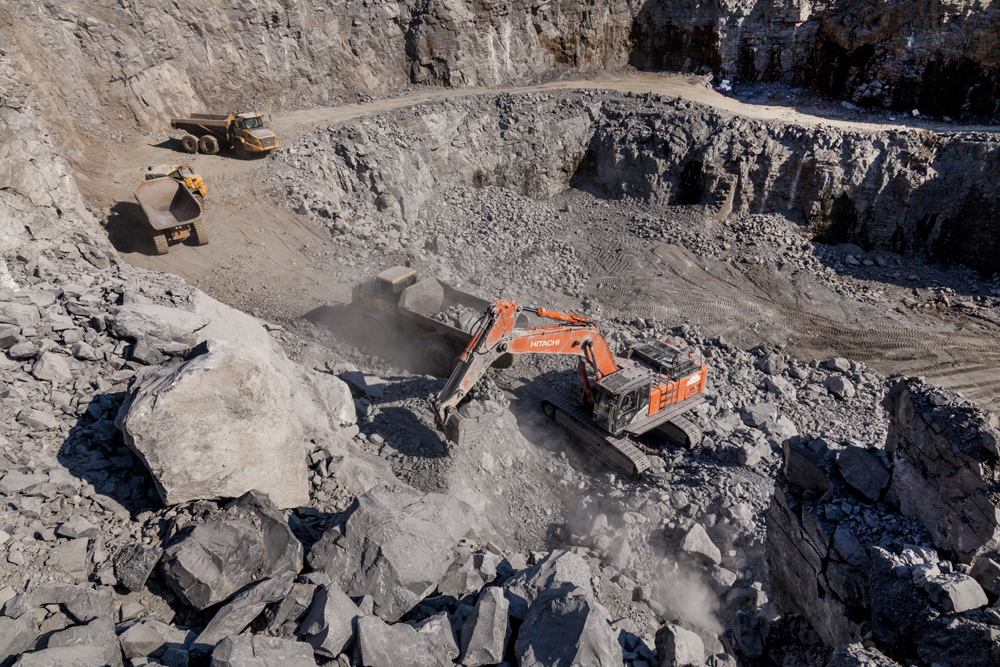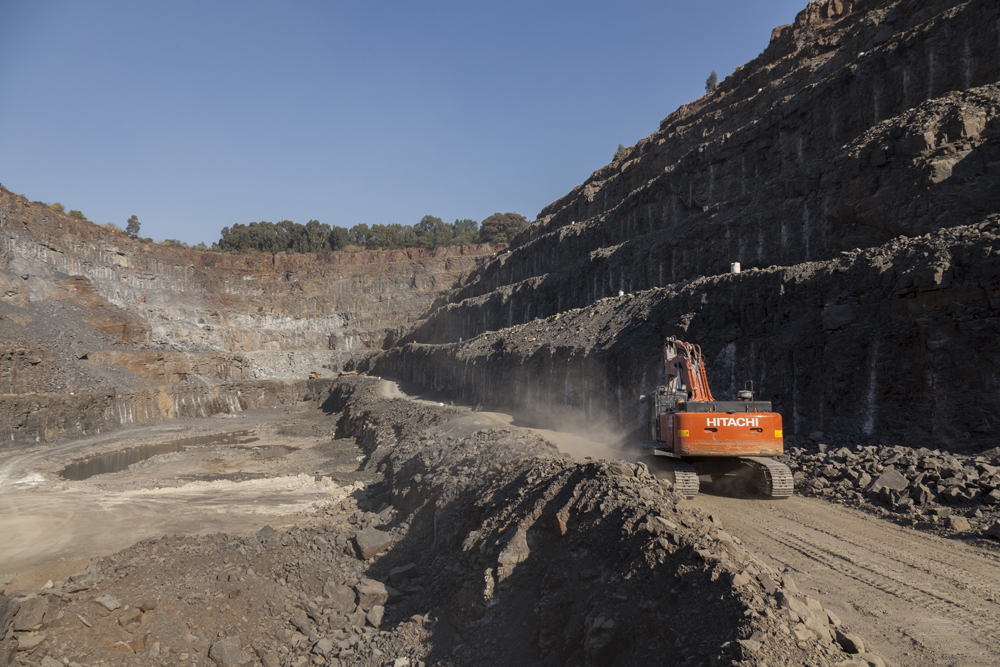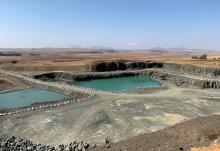
Southern Africa’s surface mining industry association, ASPASA, recently held its annual ISHE awards ceremony to recognise the exceptional health and safety efforts of individuals and companies operating in the quarrying sector. In his keynote address at this virtual event, Paul Mardon, deputy general secretary: Strategy and Sustainability at Solidarity, a South African-based trade union, reiterated the significance of good leadership for operations to achieve sound health and safety outcomes.
Commenting on the value of the ASPASA awards, Mardon says the annual event underpins the industry’s commitment to health and safety at work as the foundation of a contented and productive workforce as well as the sustainability of businesses. In the long run, he says, only safe production is sustainable. Business strategies that ignore this reality may be successful in the short term but will eventually run into difficulties, he cautions.
“Our words and the awards are mere tokens of that which is at the heart of ASPASA’s ISHE awards – the commitment to health and safety to ensure that every worker returns home safely every day,” says Mardon. “The value hereof is immeasurable as it relates to human lives and is indispensable for happiness, financial sustainability and economic growth.”

The evidence of ASPASA member operations’ successes is indicative of the high level and professionalism of the leadership. According to Mardon, one of the most important principles of business is good leadership, which is essential for success. Leadership, he says, comprises two elements – ethics and effectiveness – which work together and are complementary to each other. “Effective leadership is results-driven to achieve strategic objectives and positive outcomes,” he says.
Some inevitable, secondary, but extremely important outcomes of ethical and effective leadership include a reputation for business as a good corporate citizen and market and investor confidence. “As any business executive knows, good reputation and investor confidence are some of the most important factors for the sustainability of any business,” says Mardon.
Ethical and effective leadership, adds Mardon, also translates into no or minimal production and operating losses due to, among others, less stoppages for incidents and investigations, improved commitment by workers and better care of equipment by workers.
“Sound employee and labour relations are also positive spinoffs of ethical and effective leadership, and that in itself is a bonus. We often see the positive spinoffs that a good health and safety relationship between trade unions and the employer ultimately has on labour relations. The mutual trust in the health and safety relationship serves as a good basis for developing labour relations, but it is important to nurture the relationship – once broken, it is extremely difficult to fix again because it is about the lives and wellness of workers,” he says.
The ISO 45001 standard, he says, confirms that leadership and commitment are central in the management and achievement of health and safety success at the workplace. It recognises that an organisation can improve its Occupational Health and Safety (OHS) culture by providing clear and consistent leadership; promoting the formal and informal involvement of workers; and ensuring that controls are practical and proportionate to the risks.
That, in turn, will lead to the achievement of the company’s operational and economic objectives and goals. “Leadership is therefore of utmost importance. South Africa, if not the continent at large, is, unfortunately, suffering from a leadership crisis. We have to deal with the realities of bad decision making and rampant corruption, which are the result of poor executive leadership and ethics,” says Mardon.
It is difficult for the quarrying sector to exercise control over what happens outside the sector, and that is why it’s so important to have good leadership within the sector, where a positive influence is possible, he adds.
Another key factor in achieving good health and safety at the workplace is to attain and foster a culture of interdependency of persons at the workplace. In such a culture, says Mardon, all employees are responsible for safety. In fact, he says, each employee accepts responsibility for their own safety and that of their colleagues and acts as a safety leader within their sphere of influence at work.

The safety of all employees is equally important to everybody in the organisation. “The aim is to instil in each worker, from executives, management, supervisors, right down to the last person on the ground, the mindset that, firstly, the only way to do one’s job well is to do it safely – if it can’t be done safely, don’t do it; and secondly, health and safety is an integral and inherent part of the job and doing the job right and well; and thirdly, health and safety at the workplace cannot be achieved without working together with fellow employees,” says Mardon.
“The aim of a culture of interdependency leads to, among others, a sense of organisational pride by all employees, which translates, not only into healthy and safe workplaces but also into a culture of co-ownership of the business and working together for the common good of the business and all in its employ,” he says.
Embracing a safety culture in traditionally hazardous working environments, such as mining and quarrying, is extremely hard work and quite challenging, especially because of the cost of production and regulatory challenges in these industries.
“However, the achievement of a health and safety culture by all workers on all levels is very rewarding. Not only in terms of reputational benefits, reduced input costs and increased production and profit, but also in terms of the general wellness of workers and their families – and even improved trust and labour relations,” says Mardon.
The establishment of a safety culture is undeniable proof of safety leadership, ultimately allowing more workers to return home safely to their families every day and for company owners and shareholders to have greater confidence that business performance is being driven for the positive.
“The embracing of safety leadership as a strategic business value is, therefore, an imperative. It is necessary for and core to good governance, exemplary business practices and ultimately, it is a necessary human value,” concludes Mardon.









